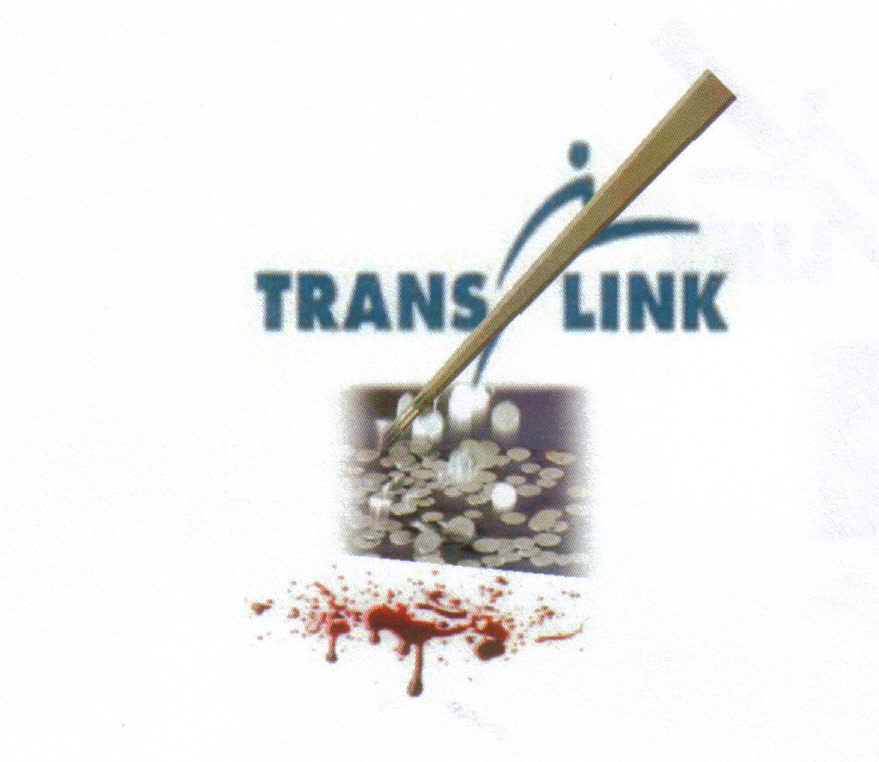EDITORIAL: TransLink faces a mutiny if it doesnai??i??t shape up – From the South Delta Leader
TransLink has a credibility problem, largely because it has not been truthful with its dealings with the public. TransLink is nothing more than a ponderous bureaucracy staffed with career bureaucrats, who live in a dated 1950’s world of public transit. With most of the regional politicians memorized by TransLink speak and where doing nothing is seen as doing something, has given TransLink a free hand in demanding new taxes.
The public though, are beginning to wake up to the fact that TransLink’s conjuring is an old and tired fakir’s smoke and mirrors trick, where doing the same thing over and over again and hoping for a different outcome has become the regional transit doctrine and a rather expensive one at that.
TransLink is well past any hope of redemption as it is held in high odor by too many people, with only those who want to retain this behemoth are those who would benefit, such as the City of Vancouver.
Zwei thinks that TransLink should be split into three entities, the North Shore and Howe Sound; The cities with mini-metro (Vancouver, Burnaby, Richmond, New Westminster and the Tri-Cities); and South of the Fraser and let the taxpayer pay for the transit in their region. Certainly those who reside in the mini-metro served area will soon know the true cost of building with SkyTrain and the Canada Line!
TransLink and transit planning is in a mess, but throwing more money at TransLink will not solve any problems at all, but do the opposite, exacerbate the situation.
EDITORIAL: TransLink faces a mutiny if it doesnai??i??t shape up
By Robert Mangelsdorf Ai?? South Delta Leader
Published: February 22, 2013 9:00 AMAt Mondayai??i??s Delta Council meeting, Mayor Lois Jackson again expressed her position that local residents pay too much for TransLink.
Jackson is right to be upset about how much money Deltans are pumping into TransLink, and how little they are getting in return. At $39.4 million annually, every man, woman, and child in Delta is contributing $400 to the local transit juggernaut, according to the mayor.
TransLink receives close to $600 million of its $1.3 billion in annual funding (2011 figures) from property tax and fuel taxes. That means Delta residents account for 6.6 per cent of this funding, despite making up just 4.3 per cent of Metro Vancouverai??i??s population.
That wouldnai??i??t be so bad if we were receiving good transit service for our hard-earned tax dollars, but that is simply not the case.
TransLink provides more than just bus rides, of course, although 60 per cent of its budget does go to public transit. TransLink is also responsible for maintaining more than 2,200 lane-km of major arterial roadways, including the Knight Street Bridge, Pattullo Bridge, Golden Ears Bridge, and Deltaai??i??s Westham Island Bridge. TransLink also contributes up to half of the costs of municipal capital projects.
But all of this only accounts for seven per cent of its total budget, and much of it is spent outside of Delta, instead going to major population-centres, such as Vancouver, Burnaby, and Surrey.
We have no rapid transit, spotty bus service, and near-constant gridlock.
To put it bluntly, Deltans are getting screwed.
TransLinkai??i??s funding model is skewed, with residents of outlying suburbs paying more for fewer services. If TransLink doesnai??i??t address the issue it will have a mutiny on its hands, with the likes of Delta, Maple Ridge, and Langley all jumping ship because they could be better served on their own.
Transit expenditures in each municipality need to be tied to each municipalityai??i??s contribution, so residents get a fair return on their tax dollar.
TransLinkai??i??s funding issues have been created by years of chronic underfunding and overspending. As a result, TransLink now spends 13 per cent of its budget on interest expenses.
Thatai??i??s why TransLink needs to make getting out of debt itai??i??s No. 1 priority before any further expansion can be planned. And both the provincial and federal governments need to step up and contribute their fair share, not just for capital costs, but for ongoing operating expenses as well.
The people of Metro Vancouver will also have to make sacrifices. The proposed 0.5Ai?? per cent regional sales tax is a sorely needed revenue boost for TransLink, and at a proposed rate of a penny to a nickel on every $10 spent, it will barely be noticed.
Public transportation benefits everyone, and is necessary for a healthy economy. But shouldnai??i??t those who receive the greatest benefit, pay the greatest share?
Because right now, thatai??i??s not happening.




